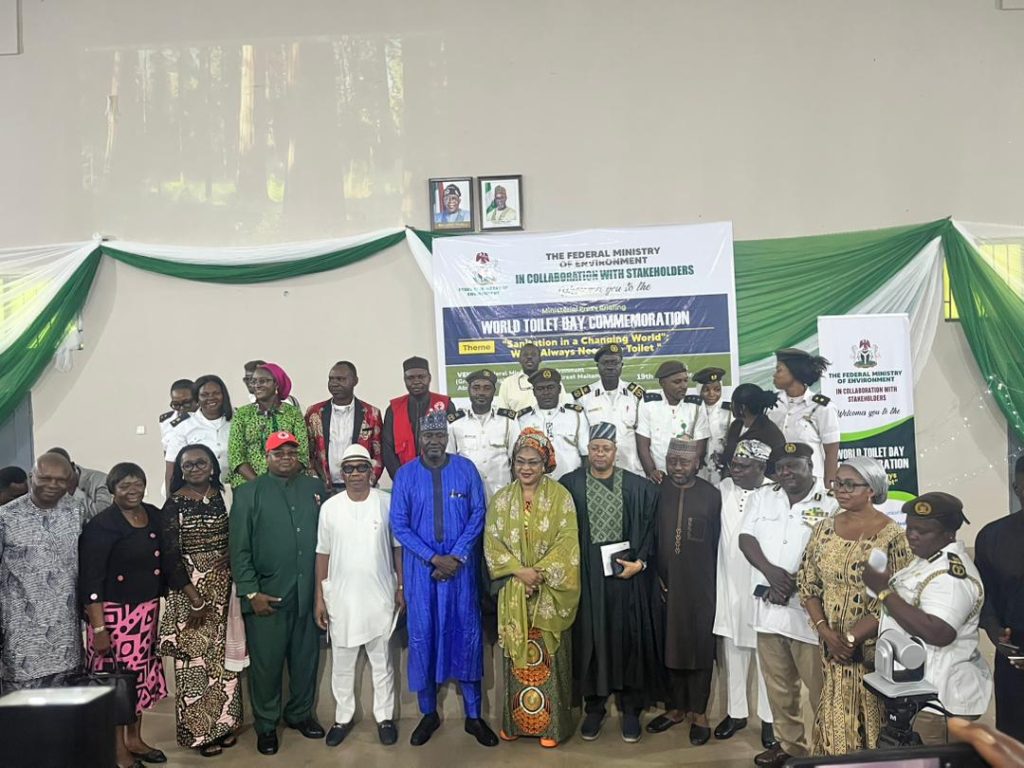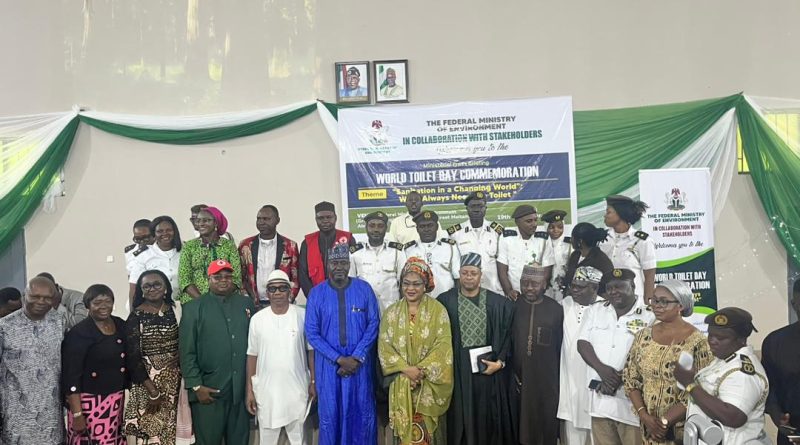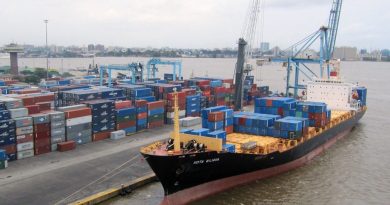Over 45m Nigerians Still Defecate Openly-Lawal
By Bukar BOLORI
The Minister of Environment, Balarabe Lawal, has decried that just about 25 per cent of Nigerians have access to safely managed sanitation facilities leaving over 45 million Nigerians still practice open defecation.
Lawal gave that figures in Abuja on Wednesday at a press briefing to commemorate the 2025 World Toilet Day, themed “Sanitation in a Changing World,” with the tagline “We’ll Always Need the Toilet.”

The Minister who was represented by the Permanent Secretary at the ministry, Mahmud Kambari, said that this year’s theme reflects the growing impacts of climate change, rapid urbanisation, and widening inequalities that weaken sanitation systems.
November 19 was set aside by the United Nations General Assembly, in recognition of the global sanitation challenge to raise awareness and inspire action to tackle the global sanitation crisis, which still affects billions of people worldwide.
The minister said, “The advent and access to toilets remain a foundation to public health and play an important role in protecting both people and the environment. They hygienically remove human waste, reduce exposure to diseases, and uphold dignity. Unfortunately, in many parts of the world, toilets and the systems that support them remain underfunded, poorly managed, or neglected.
“Currently, about 4.2 billion people globally live without access to safe toilets, while in Nigeria, over 45 million people still practice open defecation, and only about 25 per cent of the population have access to safely managed sanitation facilities.
“Many schools, healthcare facilities, and public institutions either lack functional toilets or have facilities that are poorly managed. In urban areas, the absence of adequate sewerage systems has led to unsafe disposal of wastewater and sewage into rivers and streams, thereby contaminating our environment with resultant impact.”
He regretted that the situation contributes significantly to diseases such as cholera, diarrhoea, typhoid, and intestinal worm infections, which continue to claim lives, especially among children under five years of age.
He decried that poor sanitation also drives antimicrobial resistance and undermines Nigeria’s progress towards SDG 6.2, ensuring access to adequate and equitable sanitation and hygiene for all by 2030.
He, however, noted that the Federal Government is committed to tackling sanitation challenges and achieving an Open Defecation Free Nigeria by 2030.
“This commitment is demonstrated through the Presidential Declaration of a State of Emergency on Water, Sanitation, and Hygiene, and the signing of Executive Order No. 009 (2019) titled “The Open Defecation Free Nigeria by 2025 which is under review and Other Related Matters.”
The Minister added that the ministry and other stakeholders have reviewed and updated the 2005 National Environmental Sanitation Policy, including guidelines for safe excreta and sewage disposal.
In her welcome remarks, the Director of Pollution Control and Environmental Health, Dr. Bahijjahtu Abubakar, noted that billions still lack access to safe toilets and millions continue to practice open defecation.
She warned that this poses serious health and environmental risks, especially to women, children, and other vulnerable groups, as poor sanitation fuels the spread of diarrhoea, cholera, and typhoid, which remain major causes of illness and death among children under five.
She said: “Today’s commemoration provides us with an opportunity to reflect on the progress made so far in improving sanitation services across Nigeria, while also renewing our collective commitment to ending open defecation by the year 2030.
The Secretary General of the Nigerian Red Cross Society, Abubakar Kende, highlighted sanitation as a vital human right and stressed the urgent need to address challenges such as climate stress, poor funding, overcrowded urban areas, and cultural barriers.
He said the Red Cross, in collaboration with government ministries and partners, is advancing solutions through the National Strategic Plan of Action on Cholera Control to improve sanitation and hygiene nationwide.
He said: The theme emphasises the constant necessity of sanitation as a human right despite global challenges.
It highlights the need for urgent action to protect and expand access to safely managed sanitation in a changing world, which is being impacted by issues like ageing infrastructure, rising demand, climate change, and growing inequality.”




